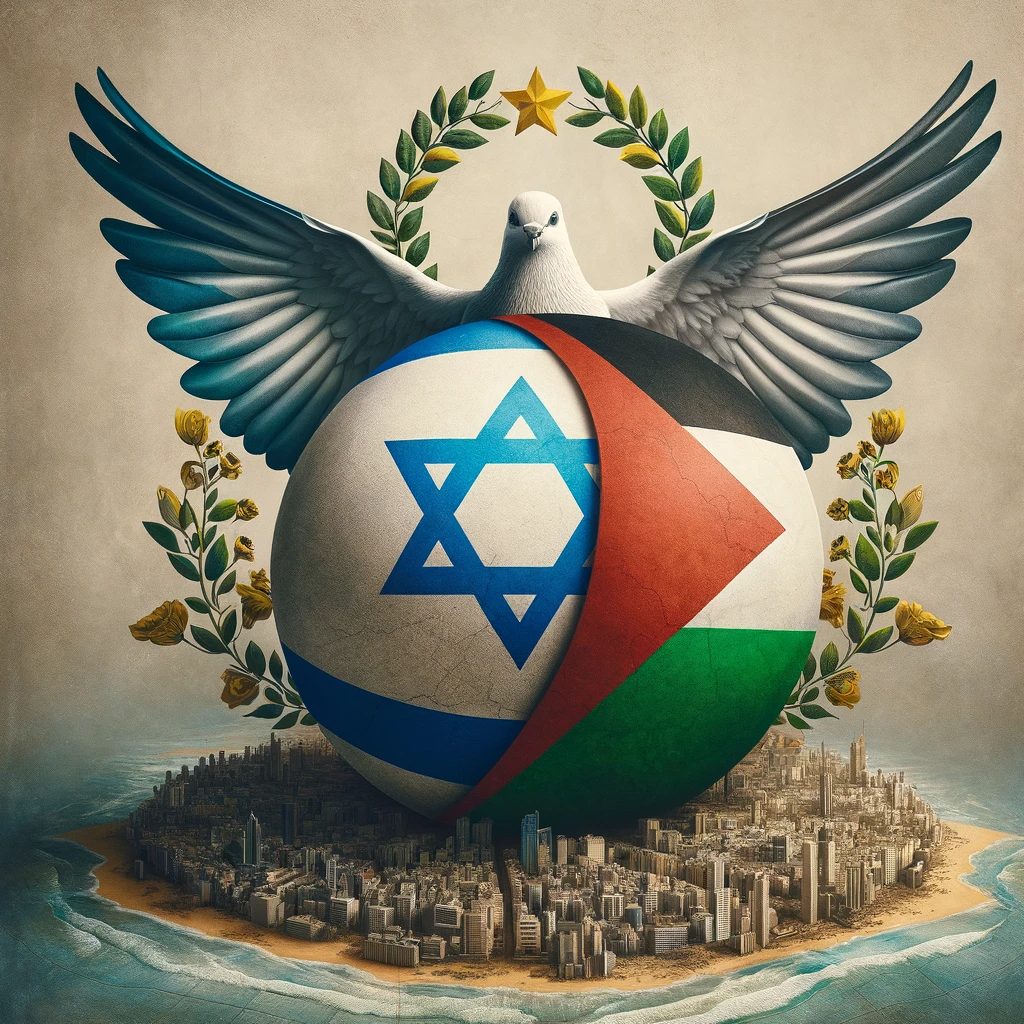
The conflict between Israel and Palestine, one of the most deep-rooted and complex geopolitical disputes in modern history, continues to be a hotbed of instability in the Middle East region. This article aims to analyze the nuances of this conflict, incorporating Brazil's position and evaluating the implications of this stance for the country and regional dynamics.
The Israeli-Palestinian issue has its roots in the early 20th century, with the creation of the State of Israel in 1948, approved by the UN, which triggered massive displacements and territorial disputes. This scenario gave rise to a series of conflicts and intifadas, shaping the political landscape of the Middle East and generating global repercussions.
currently, the impact of the conflict goes beyond the borders of Israel and Palestine, directly affecting neighboring countries and contributing to the general instability of the Middle East. This scenario is worsened by issues such as the crisis in Syria and tensions in the Persian Gulf, creating a complex web of alliances and hostilities.
On the international stage, the stance of global powers varies. The United States has traditionally supported Israel, while Russia and China maintain a more balanced or biased position towards the Palestinians. These differences reflect the complexity of the conflict and the broader geopolitical game.
Brazil, historically, adopted a balanced stance towards the Israeli-Palestinian conflict, defending peaceful solutions and respect for human rights. Recently, Yet, a subtle change is observed in Brazilian foreign policy, with a more evident alignment with Israel. This change could have significant implications for Brazil, both in terms of its bilateral relations with Middle Eastern countries and its image on the international stage. Brazil, by adopting a stance more aligned with one side of the conflict, may face challenges in maintaining its traditional role as a neutral mediator in international issues.
From a humanitarian point of view, the conflict continues to cause devastating losses. The populations of Israel and Palestine deal with deaths, trauma and significant material damage. The socioeconomic situation, especially in the Gaza Strip, is particularly alarming.
The search for solutions to the conflict saw several international proposals, but mutual distrust and the influence of external actors hinder progress. The two-state solution, despite its challenges, is still seen by many as the only viable path to peace.
Brazil's role in this context is multifaceted. The stance adopted by the country can influence its diplomatic and economic relations, as well as reflecting its alignment with certain global powers. At the same time, This change of direction in foreign policy could affect Brazil's image as a neutral actor and peacemaker in international conflicts.
The central question of the article, therefore, is the complexity of the conflict between Israel and Palestine and how Brazil's position, oscillating between neutrality and a clearer alignment with one side, reflects and affects this dynamic. While lasting solutions to the conflict remain elusive, the importance of multilateral and inclusive approaches, that consider the needs and concerns of all parties involved, including Brazil's position, becomes increasingly crucial.
